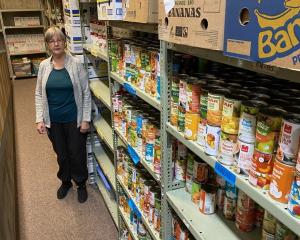Visitors to Dunedin Hospital and patients are being asked to take special precautions until further notice because of a norovirus outbreak affecting three of the wards at the hospital.
To contain the infection, advanced infection prevention and control measures have been put in place at the hospital.
Southern District Health Board chief operating officer Hamish Brown said some patients and staff had already recovered, as the outbreak had begun about a week ago.
However, he called on everyone to do their bit to help contain and stop infection from spreading.
While one of the affected wards was likely to be reopened yesterday, two of the wards, both on the seventh floor of the hospital, also had confirmed cases of norovirus.
Visitors to these wards would be permitted at the discretion of the charge nurse manager.
It was important that visitors who were unwell did not visit the hospital, and any patients with gastroenteritis symptoms presenting to the emergency department should declare this to staff immediately upon arrival, Mr Brown said.
"This will mean that they can be appropriately supported and cared for in a way to avoid the spread of gastroenteritis to other patients and visitors.
"While we are not turning patients away, we would ask people to consider whether it is appropriate for them to visit their GP in the first instance.
"Everyone entering the hospital, as a patient or visitor, are asked to observe hand hygiene practices, including washing their hands and using the hand sanitiser located at stations throughout the complex."
Some surgeries and procedures had been cancelled or delayed while the outbreak continued, Mr Brown said.
Patients affected by any changes to their planned appointments had been contacted directly.
NOROVIRUS FACTS
Norovirus is the major cause of non-bacterial gastroenteritis, and can remain viable in the environment for up to 12 days.
Symptoms include nausea, vomiting, abdominal cramps and diarrhoea.
Vomiting is more common in young people, and diarrhoea in adults.
Generally, symptoms begin one to two days after exposure to the virus, and last for one to two days.
Affected people are strongly advised to stay away from work, school, or preschool until they have been symptom-free for at least 48 hours.














